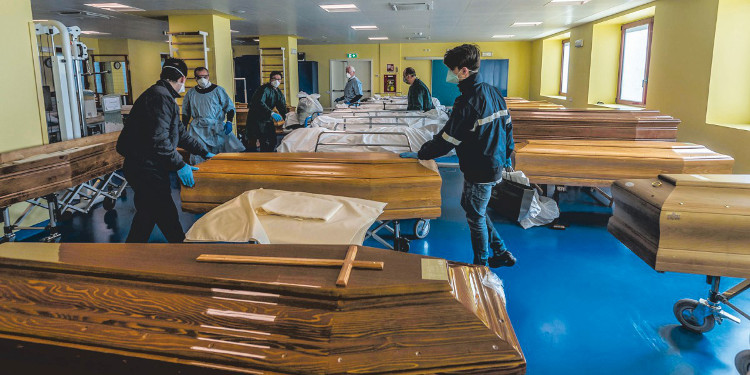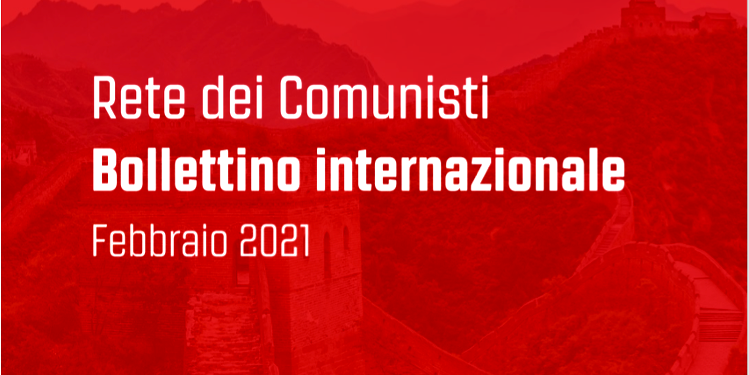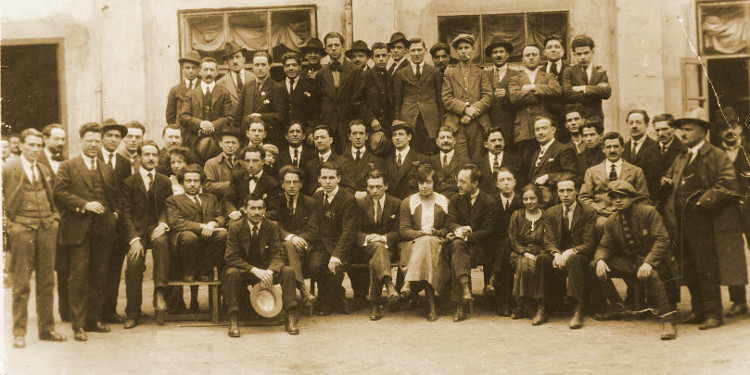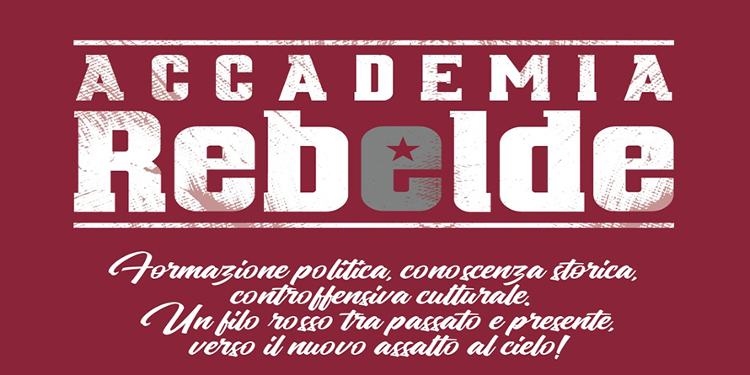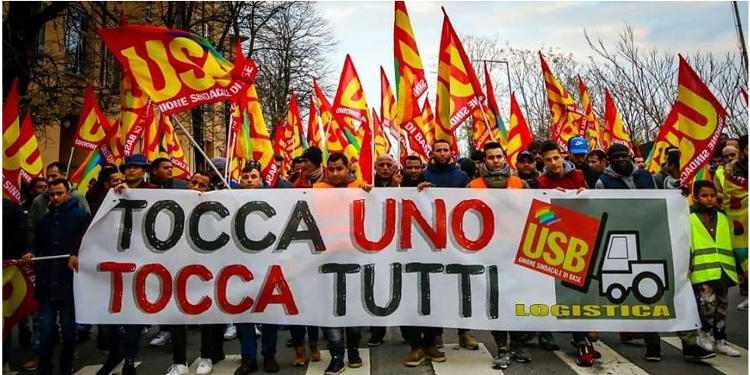Sergio Cararo, Contropiano.org
It becomes difficult to dismiss as normal the fact that more than 80,000 people have died from Covid in recent months. And it is also difficult to get used to the hundreds of deaths that every day give us back in an unbearably aseptic way the daily bulletins.
It’s like if every day a small town – or two or three condominiums of a big city – disappeared. We can afford everything except to accept this situation as inevitable.
The number of deaths and contagions is also high in other European capitalist countries or in the USA. It is a fact, but certainly not a consolation. In other countries with other social systems, it is not only this macabre accounting that is different, it is above all the spirit with which the pandemic has been faced and is being faced that is making the difference.
Instead, to this unacceptable accounting would have wanted us to get used to those who claimed to have to “live with the virus” relying on “herd immunity” – even when there were no vaccines – but omitting the dark side of this approach: the natural selection in which the weakest perish and the strongest survive. But this is what we are approaching with long steps, while continuing to deny it.
Sometimes, the pandemic has been improperly described as a war against an “invisible enemy”. But in a war, as is well known, all moral rules are thrown out and everything is subject to the state of necessity.
This is why it is less and less surprising that the logic of war doctors – to save those who have a chance of survival and let die those who have less or little chance of survival – eventually becomes the norm and not the exception
And not because of the perfidy of doctors, but because it is the context that increasingly pushes for the achievement of a threshold of normality that has raised the bar of cynicism and selection on living beings even higher.
Then there is the social data, that is connected to the medical one in many ways. Keeping restrictive and precautionary measures high affects economic activities, because of closures and limitations, because of the resources that should be allocated to public health, and because of the depressive effects on people that discourage consumption and social activities.
Finally, on this aspect, impacts the difference between pandemic and syndemic that many still insist on denying or removing: contagions are more extensive and lethal in poorer social sectors than in others, in working-class neighbourhoods rather than in others.
Here and there we learn that some rich and famous people, or even people not from proletarian conditions, have been infected, but in the death count there are none, except in very exceptional cases.
So even the virus, while being an objective problem, has its own class dimension, both in terms of the people who are most violently affected, and the solutions adopted to deal with it. Facing repeated quarantines in large houses, with a garden, with many services (e.g. connection or computer) is one thing; facing them in small houses, without balconies, in the absence or scarcity of services, is quite another. Being forced to use public transport to get around or go to work is one thing, being able to rely on your own transport is another. In essence, we have never been, and we are not “in the same boat.”
After almost a year since the first symptoms of the pandemic (the WHO announced it already on January 5, 2020), where are we stand on this inevitable complexity of an unforeseen and unpredictable pandemic?
• There are now too many dead and infected people compared to what could be considered a physiological price of a pandemic for advanced countries in the capitalist world;
• The time wasted and the things not done by the authorities in terms of public health facilities, recruitment of the necessary employees and public transport, during the months of the respite between the first and the second wave, have made the second one more lethal than the previous one;
• The half-measures adopted in the last months of 2020 produced great economic damage, poor results in terms of pandemic containment and complete disorientation of society on the challenges to be faced. The credibility gained by the government in the first wave was completely dissipated in the second one. But if the government has its responsibilities, a sword even sharper should fall on the presidents of the Regions and on those who, in 2001, wanted to change the Title V of our Constitution, thus giving greater powers to the Regions, causing a serious disaster at the time of the emergency on the national scale;
• The “salvific” character of vaccines will still have to deal with a long period before being effective. So, the authorities tell us that we will have to “live with the virus” – and its health, economic, psychological and social consequences – for months and months yet. The only social activity allowed is the one linked to the production process (for those who have a job), everything else is denied, even within the walls of the home. Moreover, the data that just in these days have been shown by all the political and health authorities, confirm that the situation often appears out of control and at continuous risk of collapse of hospital facilities, despite the auspicious surname of the Minister of Health (in the Italian language, “Speranza” means “hope”). In short, the sad and ferocious doctrine of “produce, consume, die” seems to be the only horizon that is made available to society;
Finally, and certainly not for importance, an entire political class made up of ministers, undersecretaries, Regional presidents, parliamentarians, in an infernal context like this, has given proof – indeed, confirmation – of its ineptitude
We work so that, as soon as possible, a part of this political class goes under process for the choices made in recent months. And not only in the courts, but also in the squares.
We owe it to the more than eighty thousand deaths that have already occurred, but we also owe it to millions of people who live and inhabit this country.

